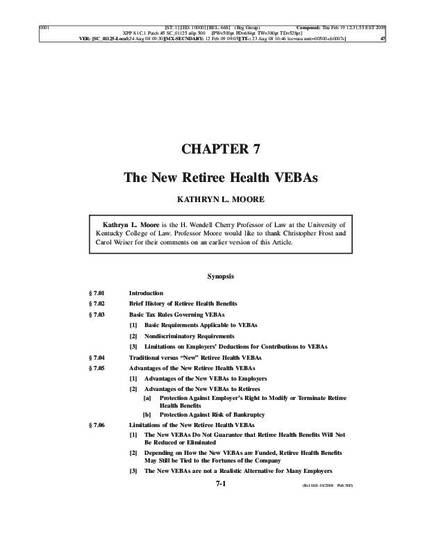
Granted tax exempt status since 1928, Voluntary Employees' Beneficiary Associations (VEBAs) have received considerable attention since the fall of 2007 when General Motors, Ford, and Chrysler reached separate landmark agreements with the United Auto Workers union pursuant to which the companies agreed to contribute billions of dollars to VEBAs in exchange for transferring their retiree health care liabilities to the VEBAs. Specifically, General Motors agreed to contribute $31.9 billion while Ford agreed to contribute $13.6 billion, and Chrysler agreed to contribute $11 billion. Sometimes referred to as "defeasance" VEBAs, these "new," "stand-alone" retiree health VEBAs, differ significantly from traditional VEBAs in that the employers transfer retiree health obligations to the VEBAs.
This article will examine this new trend in retiree health care financing. It will begin by providing a brief history of retiree health benefits. It will then describe the basic tax rules governing VEBAs. It will then discuss the difference between traditional retiree health VEBAs and the new retiree health VEBAs. Finally, it will discuss the advantages and limitations of the new retiree health VEBAs.
